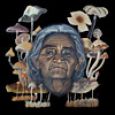This is the first book for Feiling, a British documentary-filmmaker, and it is a rollicking work of muckraking advocacy journalism. He seems to have interviewed numerous people, from heads of state to street-level users and dealers, and everyone in-between. The conversational snippets he includes are elucidating and entertaining. Not really just a book about cocaine, this is a book about the stupidity and corruption that exemplify governance of our modern world, viewed through the lens of the cocaine trade. [ read more ]
Fadiman gets right to the guided session instruction without disclaimers and apologies—a courteous gesture considering we’ve waited for more than a generation already. The guidebook is replete with suggestions for both guide and voyager regarding everything from music, food and lighting to finer aesthetic points. The six aspects of the well-conceived voyage are set and setting (which you knew), but also: substance, sitter, session and situation. The six stages of a voyaging session are all simple and easily spelled out, as well, but this is rather like saying most of the paintings in the Louvre are made with canvas, brushes and paint: within Fadiman’s simple protocol exists a universe of possibilities. [ read more ]
Psychedelics are featured in this movie as part of a rainforest tribe’s culture. While they play a secondary role in a movie whose primary message is an environmental one, drug usage by indigenous tribes is well represented. [ read more ]
The classic low-budget film that symbolizes an end to innocence for the Sixties. Despite the glamorous, positive role drugs take on the movie the tragic ending sort of ruins it for the detached, free lifestyle the two main characters dreamed of. [ read more ]
Warning: Attempt to read property "author_name" on null in /www/library/review/review.php on line 565
Kathleen Green’s “The Secret Life of Mushrooms” (2011) is a well-produced, accessible, forty-nine minute, drug-geek’s-eye-view of Huautla de Jimenez, Mexico, the town that launched psilocybin-containing mushrooms from local secret to international psychedelic drug through the pages of Life Magazine.
Cut into steep hillsides at 5,000 feet above sea level in the mountains of the state of Oaxaca (about 175 miles ... [ read more ]
Neal’s book Psychedelic Healing is a roadmap with a destination of the integration of Psychedelics into society. Along the way, Neal works to remove roadblocks preventing this, starting with the philosophical shift from psychology to psycheology weaving the soul (psyche is Greek for soul) back into the study of the core self. [ read more ]
Too many books are described as essential reading, but for anyone who has ever been touched in any way by substance abuse or other addictions, or for anyone who knows someone who has, and especially for anyone dealing professionally with medical and policy issues related to addictive drugs, this book simply must be read. Its importance cannot be overstated. [ read more ]
“Consciousness is at once the most obvious and the most difficult thing we can investigate.” Susan Blackmore expounds upon, parses, and analyzes the great question and subject of consciousness. The elusive subject is often defined here by that which it is not, seemingly to home in on the “right” questions to ask… [ read more ]
Davis makes connections, and he writes about making connections, and he traces much of this back to psychedelics, and in particular that mildest but most commonly used of psychedelics: weed. But that is the tip of the iceberg. Davis deeply understands psychedelics (and one would imagine, experientially), and he sees the formidable challenges they provoke. The other thing that Davis does that is important, and unbelievably rare, is to totally integrate the highest of high culture with the lowest of low; the world of intellectual theorists with the myriad subcultures of partiers who vastly outnumber them; the value of relying on science while retaining an appreciation for the essences of spiritual reality. [ read more ]
After examining the role of drugs in the success of various criminal groups, Glenny voices his strong support for legalization, characterizing prohibition as a major contributor to the existence of enormous networks of organized criminal activity around the globe. In particular, Glenny describes how the chaos that has long enveloped Colombia results directly from the utterly flawed logic of the war on drugs, with devastating effects on an agricultural-commodity-producing nation. He also provides evidence that the future of the large-scale trade in illegal drugs lies in synthetics. [ read more ]











